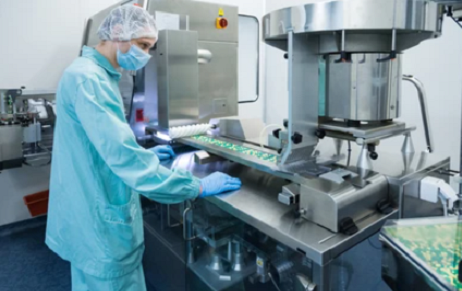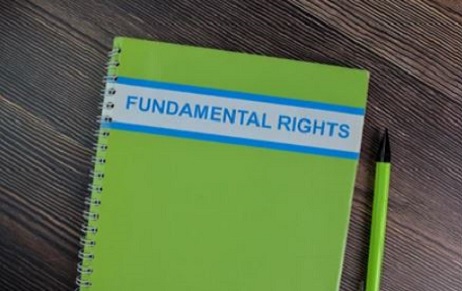Franklin D. Roosevelt (FRD) on different platforms, supported the Indian Freedom Struggle making the abovementioned…
Pharmaceutical Patents In India – Problem Of Public Access To Health
INTRODUCTION
Intellectual property laws are becoming more prevailing day- by- day, most often used from of intellectual property are patents. The major challenged faced by patent law is to create a balance between access and innovation. Pharmaceutical patents are a significant area of contention between developed and developing nations.The pharmaceutical industry asserts its right to patent ownership, profiting from high prices and R&D costs. The developing nations assert for reduced costs for producing and purchasing the medicines. India has been working to modify and alter pharmaceutical patent law to address domestic health needs, particularly for those cannot afford expensive medicines. Technology has significantly contributed to civilization’s advancement and growth, and compulsory licensing in the TRIPS Agreement can help address health issues.the Indian market and pharmaceutical companies are major distributor of low-rated pharmaceuticals,making pharmaceutical licensing pivotalfor general health concerns.compulsory licensing in the TRIPS Agreement allows generic drug producers to create patented medications, providing affordable access to these medications for those in need.
INTELLECTUAL PROPERTY RIGHTS (IPR) IN INDIA: OVERVIEW
Intellectual property rights (IPR) are legal documents that grant individuals exclusive rights to use their creative works, including literary and artistic endeavors, inventions, names, symbols, and images used in commerce.They regulate how the human intellectis crucial in the modern business and trade sector and how it is used. PRs are essential for encouraging innovation and ensuring access to medicines for the poor. India, is signatory to the Agreement on Trade Related Aspects of Intellectual Property and a member of the World Trade Organization,has risen to the top of the medicinal sector.
PATENTS: MEANING AND IMPORTANCE
A patent is a legal instrument that grants an inventor absolute and exclusive right to invent, create, use and sell and invention for 20 years. It permits the inventor to recoup their investment and gain revenue from their inventions. Patents are that kind of scholarly property which gives a unique right for product, typically providing a more efficient method of completing a task or a specialized solution to a problem. They provide valuable benefits, industrial advancement, fostering invention and protection of significant R&D expenditures. Thoe there are many concerns related to patents, but still, they are crucial tool for advancing technology and promoting innovation.
PATENT LAWS AND PHARMACEUTICAL PATENTING IN INDIA
Since 1950s, the Indian Pharmaceutical industry has grown remarkably, transforming from an import-dependent nation to a cost-effective producer of high-standard, high-quality medications.With nearly 60,000 generic brands available across 60 therapeutic categories, the Indian pharmaceutical industry has developed a strong generic base. The New Patents Act of 1970 disqualified agrochemicals and pharmaceuticals from being eligible for patents, reducing India’s reliance on foreign shipments and fostering local industry growth. This insufficiency in protection for agrochemical industries and product patents in the pharmaceutical industries has led to expertise in reverse engineering drugs, which are patentable in the industrialized world but unprotectable in India.
DOHA DECLARATION
Over past decade the global harmonization of intellectual property rights has progressed significantly, with developed nations setting the agenda. In the year 1994, the TRIPS Agreement came into force, it was initially seen as a step forward to finding a global solution, but the Doha Declaration, approved in 2001, was seen as more equitable for NGOs and developing nations who were fighting for affordable medicines. However,the HIV/AIDS pandemic escalated, and developing nations, especially those in Africa and other less developed nations, began to feel the effects of TRIPS. The African Group requested the Council for TRIPS explicitly to address the connection between Public Health and TRIPS Agreement. The World Health Organization also addressed the problem of access to medications.

The pharmaceutical industry’s essentialobligations arepivotal when considering claims that it is to blame for excessive prices or deaths in developing nations. The most challenging task is to strike the balance between theprotection of corporate interests in pharmaceutical patents and the protection of the public interest and health.
TRIPS AGREEMENT AND PHARMACEUTICAL PATENTS
To transform the international intellectual property system from a permissive to prescriptive regime the Agreement on Trade-Related Intellectual Property Rights (TRIPS) was signed by group of nations. Negatively impacting social goals by increasing the cost of medicines and other essential products, it has led to reduction in the ability of nations to supply public goods like healthcare and nutrition. TRIPS has significantly impacted access to life-saving pharmaceuticals in developing nations,especially those who are frequently hit by pandemics and has inadequate or no pharmaceutical manufacturing capabilities. The TRIPS agreement aims to promote innovation, technology exchange, and to protect and uphold intellectual property rights. However, it has been criticized by developing countries for its plan to increase drug prices and deny access to medicines to the general population.There are no requirements specified by TRIPS for patentability other than requirements that an innovation should be novel, obscure, and useful in industry. Compliance with TRIPS is now a necessity rather than an option, and the sufferings of developing and underdeveloped nations continue despite the existence of such a framework.
ISSUES DUE TO PHARMACEUTICAL PATENTINGS
In terms of production volume, India has a large number of pharmaceutical companies and a complex patent system. However, these patents’ structure can be ambiguous and make it difficult for businesses to supply life-saving medications. In country with a large population living in poverty and high health costs, the government must address the healthcare emergency with inadequate affordability, availability, and access to drugs.Initiatives such as compulsory licensing and equal exchange approaches are being taken to make basic medications more affordable for citizens.The right to life,is guaranteed by Article 21 of the Constitution, which includes right to health as well, where access to medical treatment is important. Pharmaceutical patents play an important role in ensuring access to medications and maintaining health. A fully functional patent system could lower consumer prices by fostering healthy industry competition for patented goods.
SOLUTION FOR THE PROBLEM OF PUBLIC ACCESS TO HEALTH
The right to health is fundamental right which is vital for the enjoyment of right to life and other liberties. However, the pharmaceutical industry has been excessively eager to make patent protection tougher, which conflicts with the TRIPS regime. The TRIPS regime aims to promote financial and social welfare. Presently, there are only a few examples of effective practices are being implemented by large pharmaceutical companies working in collaboration with NGOs to improve the access to medications. It is essential to use compulsory licensing and standard competition alternatives, to achieve the balance between the pharmaceutical monopolies and right to health. India, is significant member to the TRIPS Agreement, and has a robust generic medication industry and low healthcare costs, making compulsory licensing necessary.
However, some solutions have not resulted in substantial achievements in this field. The availability of alternative to prescription can influence the price of medicines,but it is not the only determinant.The market exclusivity granted by the government can encourage innovative thinking and creation of new, better and healthier treatments.This can lead to cost reduction by forging effective ties between the patent owner or creator and other parties involved in the manufacturing and licensing of pharmaceuticals.
CONCLUSION
The Indian patents law aims to balance between common people and inventors, allowing them the protection to their wide range of pharmaceutical products.The item patent system ensures access to essential healthcare for a larger portion of the population.India grants access to life-saving pharmaceuticals products at reasonable rates, as the financial interests of major pharmaceutical industries are involved. Patents can be used as a tool for organizations which lacks manufacturing or marketing skills to transfer technology,allowing them to advertise their protected goods and processes to strangers.Patent protection should not solely focus on financial gain, and inventions should serve humanity, especially in healthcare.
Author: Shubhangi Maske, in case of any queries please contact/write back to us via email to chhavi@khuranaandkhurana.com or at IIPRD.



